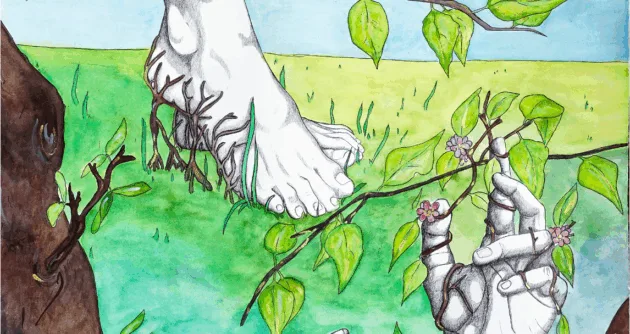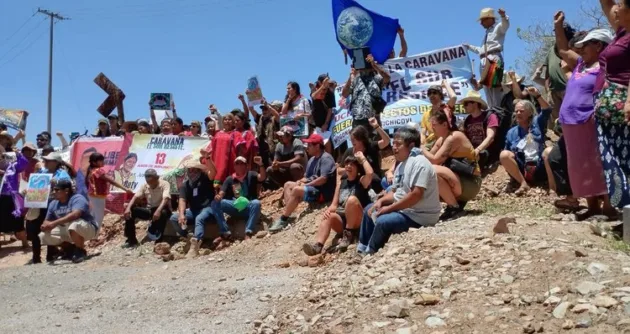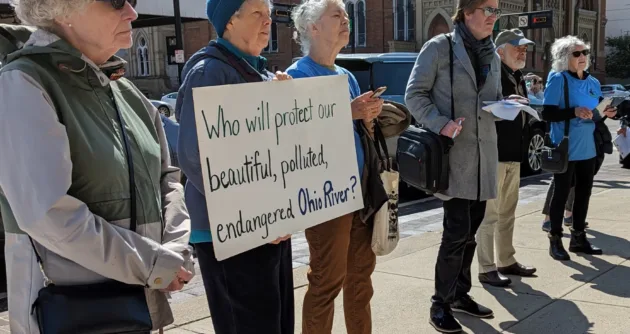Updated November 8th, 2017
Living embodiment of group motto “We Don’t Lose Until We Quit”
FOR IMMEDIATE RELEASE
CONTACT:
Tish O’Dell, Ohio Community Organizer
440-552-6774
tish@celdf.org
YOUNGSTOWN, OHIO: Registered voters in Youngstown, OH, were denied their right to vote today on their Water Protection Bill of Rights city charter amendment. However, as polls opened this morning, organizers were out in force, gathering signatures for a similar measure for the May 2018 ballot.
Residents have worked with the Community Environmental Legal Defense Fund (CELDF) to draft and advance local laws protecting their water from fossil fuel extraction and waste disposal since 2013. Each time, they have been met with strong opposition from industry, elected officials, and local media.
This year, they were met with HB 463, quietly adopted by state legislators on behalf of industry in December 2016. The new law took direct aim at Youngstown and the growing numbers of other communities across the state who are advancing rights-based laws to protect their water. Legislators granted local Boards of Elections the authority to keep the people’s initiatives off the ballot. Mahoning County Board of Elections took full advantage of their new-found authority to block Youngstown residents’ Water Protection Bill of Rights from today’s ballot.
However, in a case regarding Bowling Green students advancing a CELDF-drafted Right to Climate charter amendment initiative, CELDF’s argument that HB 463 was unconstitutional resulted in the Ohio Supreme Court’s overturning of the law. And so these concerned citizens are out in force again, collecting signatures to place their measure before voters in May.
According to Ray Beiersdorfer, one of the lead organizers, “It is obvious that our electeds are not protecting us or our water. It is up to us as community members to challenge this system that puts corporate profits above our health and the community’s future. By putting this law on the ballot, we are giving the people of Youngstown a voice to decide their own fate.”
CELDF has assisted Youngstown residents, and other communities across the state, to defend their right to initiative with every challenge..
CELDF’s Ohio community organizer Tish O’Dell stated, “These folks understand they have no alternative. They could give up their right to make their own governing decisions. They could give up their right to protect their water. But those are not real options for them. They understand that the real fight here is ‘who decides?’ Who decides what risks the community will take with their water supply? Right now, it isn’t the people. Until it is, they keep advancing those rights.”
Ohio Communities Part of Growing Movement
Ohio residents are advancing Community Rights as part of the broader Community Rights Movement building across the United States. As the Movement builds, so are efforts to block the right to initiative – such as in Tacoma, WA – and so grows communities’ determination to preserve that right.
Local communities and state Community Rights Networks are partnering with CELDF to advance and protect fundamental democratic and environmental rights. They are working with CELDF to establish Community Rights and the Rights of Nature in law, and prohibit extraction, fracking, factory farming, water privatization, and other industrial activities as violations of those rights. Communities are joining together within and across states, working with CELDF to advance systemic change – recognizing our existing system of law and governance as inherently undemocratic and unsustainable.
Additional Information
For additional information regarding petitioning communities, contact CELDF at info@celdf.org. To learn about the Ohio Community Rights Network, visit ohiocrn.org. To learn about the Community Rights Movement, visit www.celdf.org.
About CELDF — Community Environmental Legal Defense Fund
The Community Environmental Legal Defense Fund is a non-profit, public interest law firm providing free and affordable legal services to communities facing threats to their local environment, local agriculture, local economy, and quality of life. Its mission is to build sustainable communities by assisting people to assert their right to local self-government and the rights of nature.


